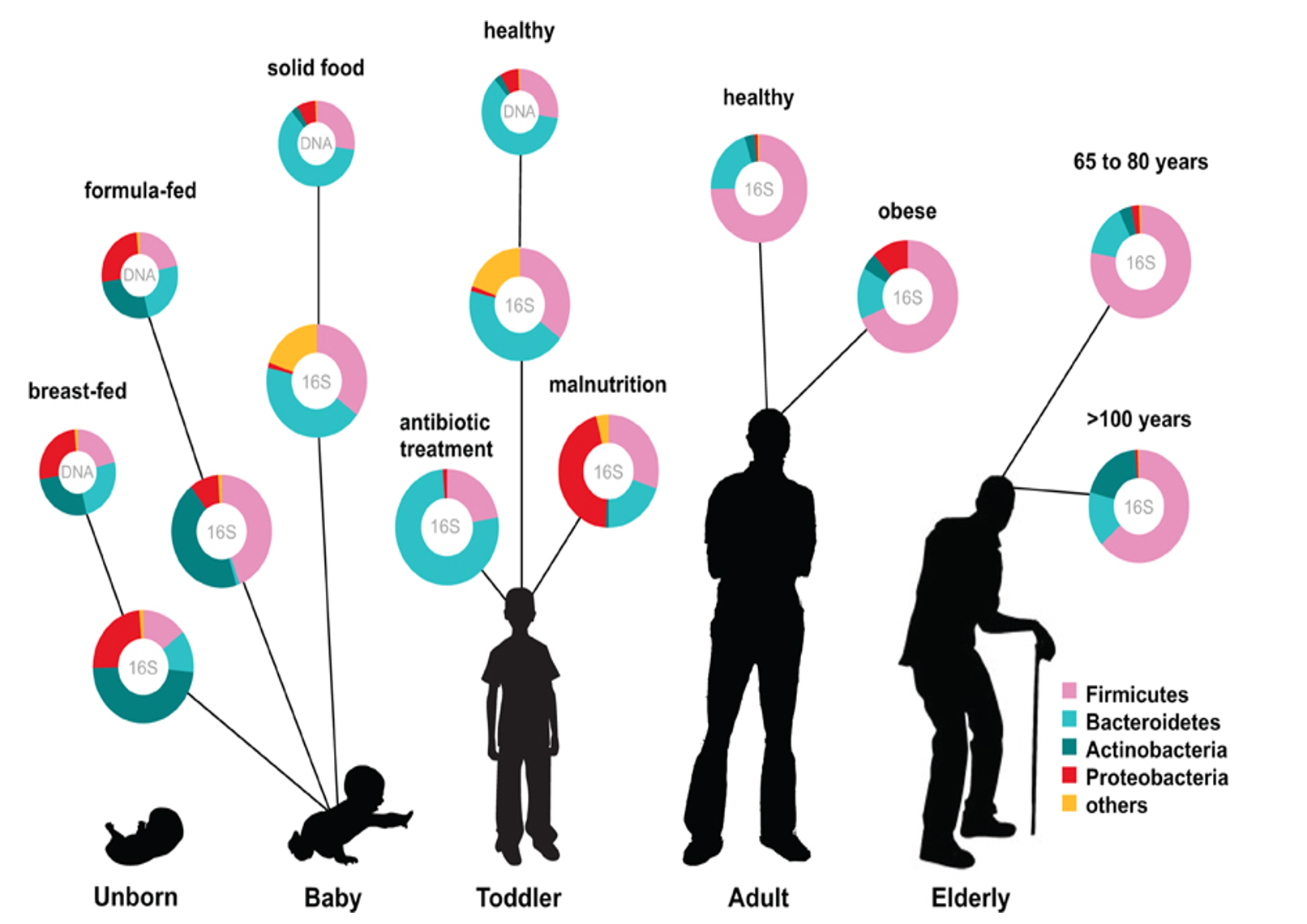Life Spectrum
The gut microbiome is considered an organ system with multiple functions crucial to human development. Studies support that the intestinal microbiome, from the prenatal period throughout childhood, impacts the development of the brain, immune system, and lungs, as well as body growth. Moreover, the timing of the gut microbiome’s influence on immune and metabolic development may also have long term consequences on risk for complex immune disorders and metabolic diseases that may also include autism, and allergies among others. At the other end of the life spectrum, the gut microbiome also appears to play an important in aging and age-related diseases. Factors that include medications, co-morbid diseases, nursing home vs community living, and diet can promote loss of diversity of the gut microbiome, immune senescence, and a global inflammatory state in the elderly. Thus, PMD members are studying and developing innovative microbiome-based approaches to prevent and treat diseases and, at the same time, promote health and quality of life across the life spectrum. We are thought leaders on the leading edge where microbiome-based interventions (dietary), biotherapeutics, and best practices will become part of the clinical tool kit of precision medicine.
Hightlighted Publications
- Center Variation in Intestinal Microbiota Prior to Late-Onset Sepsis in Preterm Infants
- Early microbial and metabolomic signatures predict later onset of necrotizing enterocolitis in preterm infants
- Gut Colonization Preceding Mucosal Barrier Injury Bloodstream Infection in Pediatric Hematopoietic Stem Cell Transplantation Recipients
- Metagenomic Sequencing with Strain-Level Resolution Implicates Uropathogenic E. coli in Necrotizing Enterocolitis and Mortality in Preterm Infants
- The high prevalence of Clostridioides difficile among nursing home elders associates with a dysbiotic microbiome
- The nursing home elder microbiome stability and associations with age, frailty, nutrition and physical location
- Alzheimer's Disease Microbiome Is Associated with Dysregulation of the Anti-Inflammatory P-Glycoprotein Pathway
- The Nursing Home Older Adult Gut Microbiome Composition Shows Time-dependent Dysbiosis and is Influenced by Medication Exposures, Age, Environment, and Frailty.
- Aging, Frailty, and the Microbiome: How Dysbiosis Influences Human Aging and Disease.
- High-dimensional causal mediation analysis with a large number of mediators clumping at zero to assess the contribution of the microbiome to the risk of bacterial pathogen colonization in older adults.
